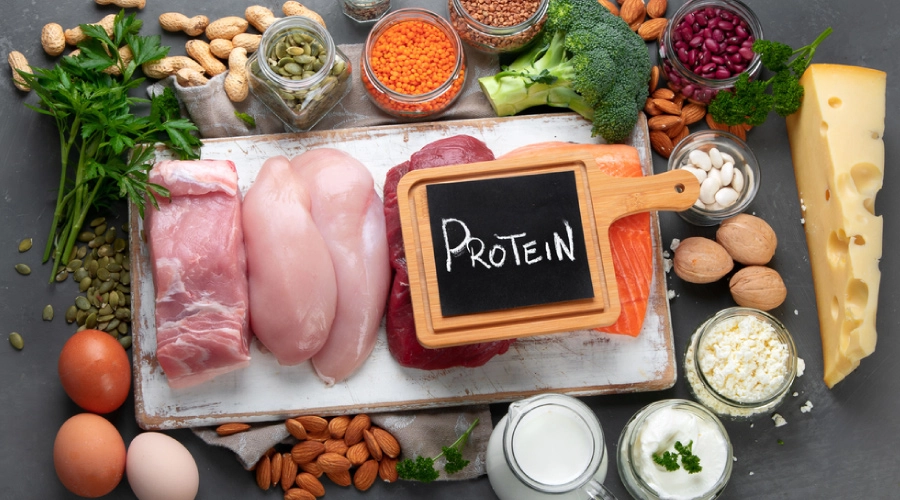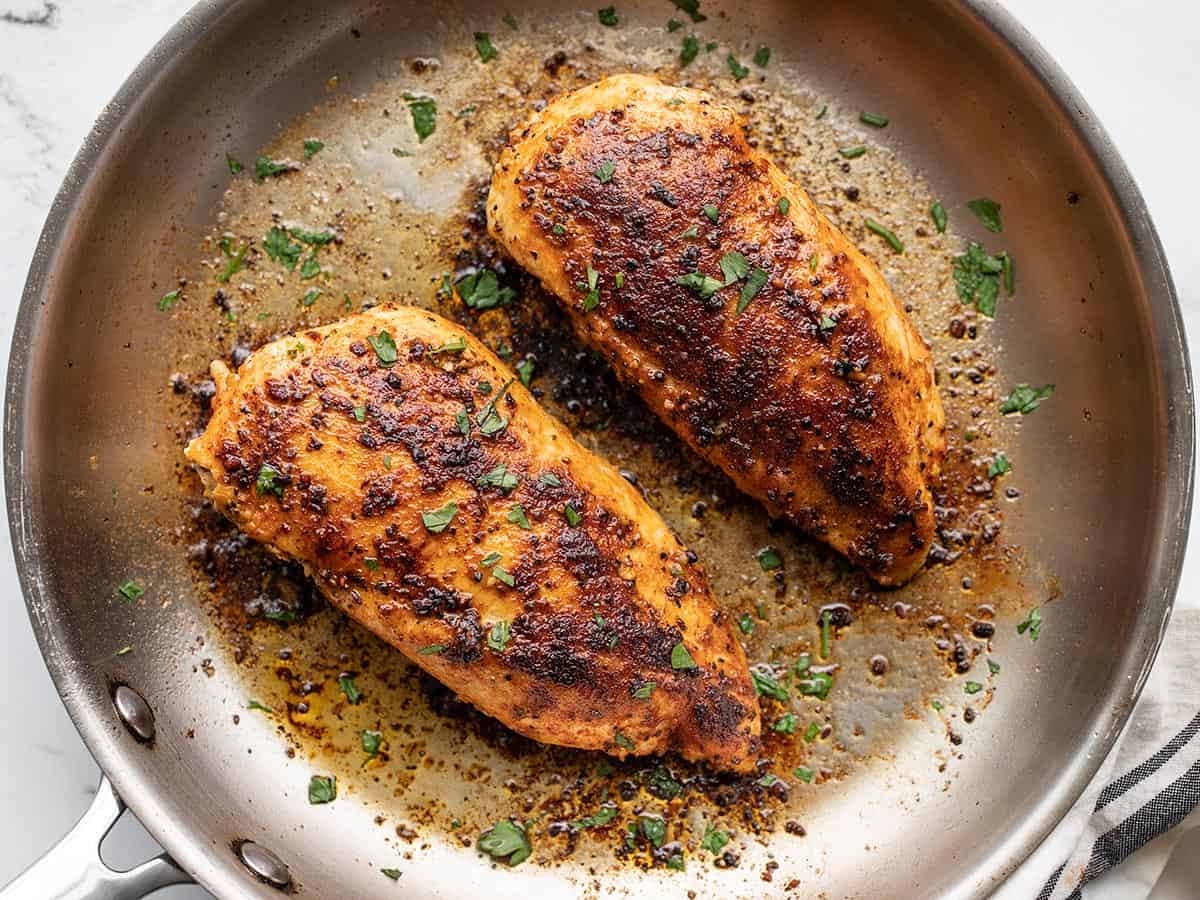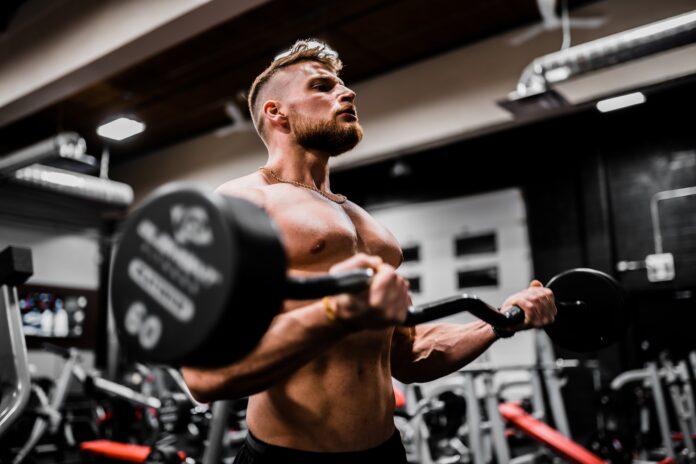Have you ever seen a bodybuilder and started wondering about what it is these people eat in a day to get that muscle mass? You already know that their basic workout consists almost entirely of lifting weights. There are many reasons why they train with weights. Some want to increase muscle mass, while others want to lose weight. But most will agree that the main goal these people strive for is to increase muscle mass and strength while reducing the percentage of body fat. This is called bulking, and it is usually achieved in phases.
Therefore, avoid the temptation to achieve all these goals at the same time. Instead, divide them into phases and approach each one in a special way because each of the training phases has its own nutrition strategy. So, aside from training properly, in order for your bulking strategy to work, you need to know what are the key nutrients to introduce into your daily diet.
What do you need to eat then?
You may have noticed how people with a lot of muscle mass tend to count and carefully plan their calories for every meal. Accurate daily caloric intake and the proper ratio of carbohydrates, proteins, and fats are key nutritional factors that you will manage during each phase of the bulking strategy, to achieve your goals.
Daily calorie intake and type of training determine whether you gain or lose weight. If you want to gain muscle mass, you will have to increase your caloric intake with a “mass” exercise program. Conversely, if you want to lose weight and reduce your body fat percentage, you will have to reduce your daily calorie intake with a “definition” training program.
Carbohydrates

Carbohydrates are the “propellant fuel” for muscle work, they are the main source of energy for training and promoting muscle growth. Too few carbohydrates in the diet will result in insufficiently replenish glycogen stores. Too little glycogen (muscle fuel) and too little energy for training will affect the quality of training and produce poor and unsatisfactory results.
Proteins

Proteins provide the basic building blocks for building muscle tissue – amino acids. Without amino acids, muscle building and recovery are not possible. Strength training requires additional amounts of protein, but this does not mean that their intake must be excessive. Everyone who is involved in bodybuilding, or some other similar strength training, will gain experience over time and find the exact amount of protein they need on a daily basis in order to feel good, but also notice progress in muscle growth and strength.
Even in sports such as bodybuilding, the required daily amount of protein can be met relatively easily with the help of protein supplements. Here you can find a lot of quality ones.
These athletes know that insufficient protein intake will hinder progress and muscle building, but it is important to note that too much protein intake will also not speed up building and proportionally increase muscle mass. Hence, you also need to eat certain food at a certain time. The timing of its consumption, oftentimes, is a more important factor than excessive consumption of nutrients such as protein.
Therefore, it is smart to divide the whole process into four phases of bulking and attach to each of the phases a diet strategy with adequate caloric intake and the correct ratio of carbohydrate and protein intake in each one.
In the period when you have a satisfactory body mass (MAINTENANCE PHASE) and when you are not working on increasing muscle mass or reducing fat tissue, your basic nutrition needs to be calculated based on your current weight.
Where do you find all these bulking nutrients?

Certain foods will help you achieve your goal faster than others, here are some we suggest you introduce to your diet:
- Chicken breast – Did you know that 100 grams of this food contain even 22.5 g of protein? It is also super rich in vitamin B, such as niacin, and vitamins B6 and B12. The intake of a sufficient amount of these vitamins in the diet is crucial for stimulating the production of energy that will facilitate your training.
- Fresh cheese – It is made from fresh curd, and has a mild taste and moist texture. It is very nutritious and contains about 11 grams of protein per 100 grams of it. It is also an excellent source of phosphorus, vitamin B12, selenium, and riboflavin. It is rich in casein – slow-absorbing milk proteins that increase muscle synthesis and help one bulk.
- Supplements – Sometimes it can be quite hard to add enough proteins and other nutrients to your meal and not intake too many calories. If you are looking for a way how to lose fat, adding supplements to your diet might be a good way to increase the intake of valuable nutrients. You can read more about this here.
One should also not forget the importance of water consumption.

The first thing to think about when eating for bulking is – the intake of meat. However, our body is made up of 70% water, and the rest… Muscles, cells, ligaments – they are all made up of water. When you enter an anabolic state (muscle building) – drink several liters of water per day (up to 7-8 L). Water is also a transport medium for nutrients for nutrition and muscle building, as well as removing metabolic products from the muscles…
There will be times when you just won’t have enough time to allocate for planning your meals. After all, we all face some busy periods of our lives where we just have to concentrate on something else. Here, supplements are a great way to ensure you’ve eaten enough of what needs to be eaten. It’s a great way to make sure the daily dose of protein has been satisfied.
Finally, no empty calories! If you want to build quality muscle mass – you must not consume empty calories! Empty calories (without protein in them) do not help you in any way to build quality muscle mass. You need to carefully plan and choose foods and supplements that will help you in the best way towards achieving your goal.







